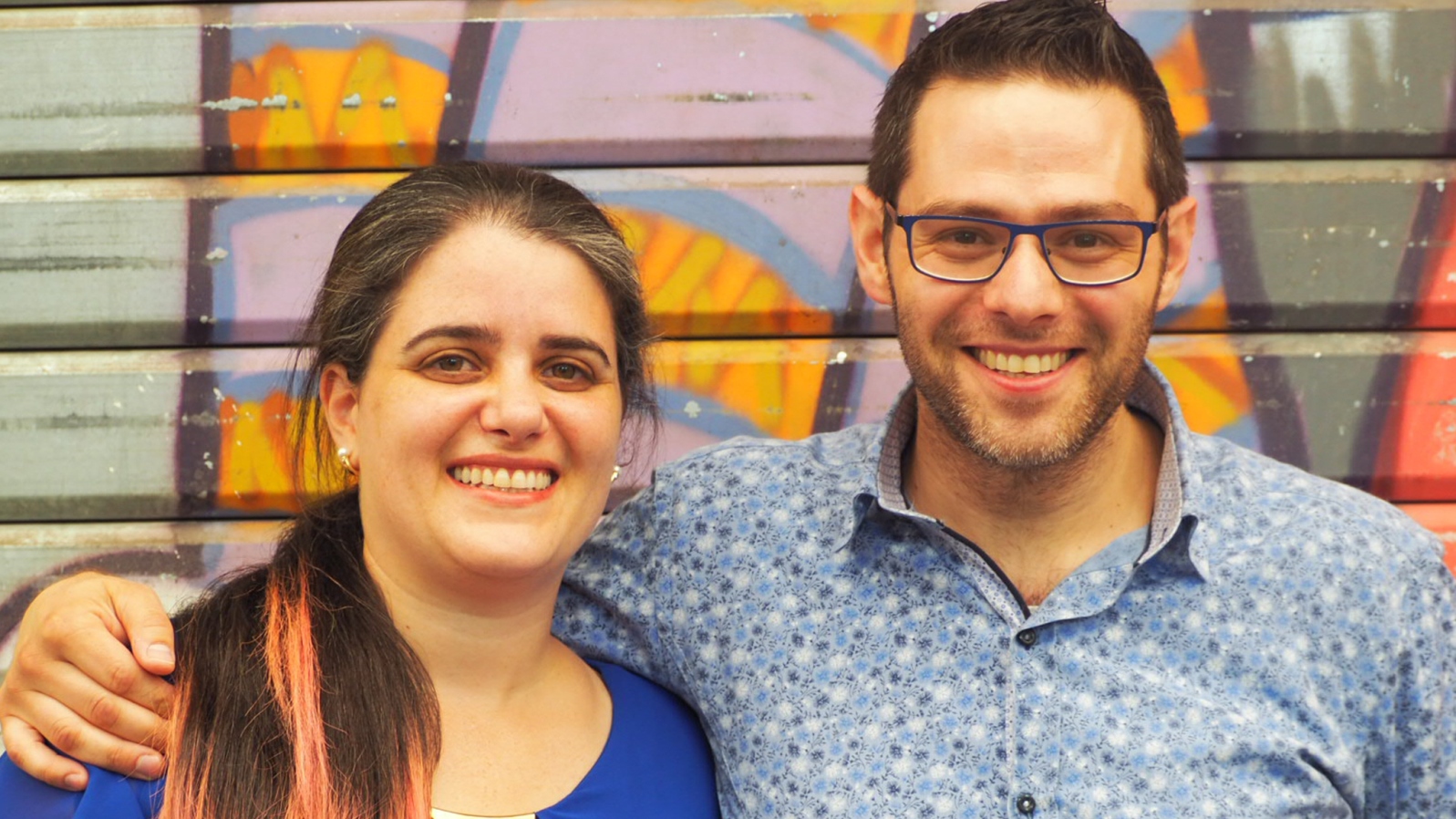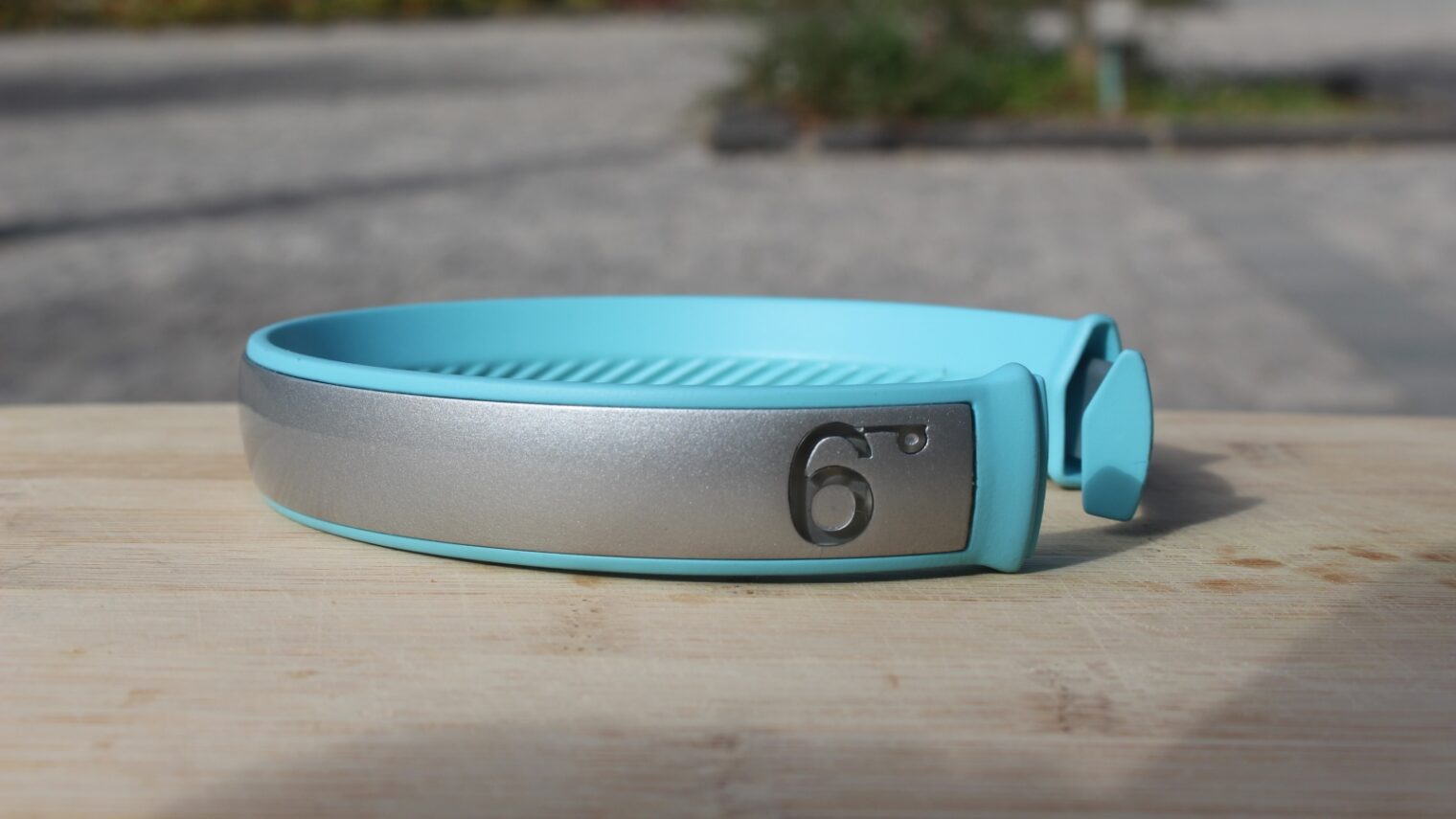This is a story of how an Israeli paratrooper’s foot injury led him and his wife to invent Crescent by 6Degrees, a hands-free cursor controller for any Bluetooth-enabled device, guided by the user’s personal set of arm motions.
The tale begins with our protagonist, Aryeh Katz, son of American-Canadian émigré parents, entering the Israel Defense Forces in 2002. A serious injury left him with complex regional pain syndrome (CRPS), a chronic condition caused by nerve damage to a limb.
Going through the grueling treatment and healing process gave Katz and his then girlfriend, Miri Berger, an appreciation for the hardships of disabled soldiers. They hoped one day to do something about that.
In 2010, Berger was accepted to Pratt Institute in Brooklyn to study industrial design. Katz, who already had a degree in biology, enrolled in the Polytechnic Institute of New York University to study toward a master’s degree in electrical engineering. The couple married and spent seven years in New York.
“One of Miri’s professors had lost his dominant arm 20 years prior and was teaching them Maya, a computer-based animation and modeling program where you use your hands on the mouse and keyboard,” Katz relates. “She saw him going back and forth with his non-dominant arm and everything took a lot longer and was frustrating.”
The professor told Berger he hadn’t found a mouse controller oriented to one-armed users, and she was determined to build such a device with Katz’s help.
“We put Crescent on his arm, and he called his mother for the first time.”
“At that time, I was working in the innovation lab at NYU, so I had access to a lot of equipment. We built something specifically to help Miri’s professor use his prosthetic limb to move the mouse. We decided to see if the idea could be adapted to work with touchscreens and gestures.”
Conversations with physical therapists, doctors and a professor from NYU Medical School helped sharpen the couple’s focus.
“We understood we had to create a motion-based technology that works not only with computers but also with cellphones,” Katz tells ISRAEL21c. “Some of my friends from Polytechnic advised us on the algorithm and a lawyer friend advised us to patent our idea.”
When a doctor working with Parkinson’s patients asked if their technology could help his patients, whose difficulty is uncontrolled motion rather than limited motion, they discovered it could.
“That was the birth of our universal control for a variety of disabilities,” says Katz.

Crescent armband
Crescent sends commands to any smart device — tablet, cellphone, laptop, TV – and takes an average of seven minutes to learn how to use, Katz observed in alpha trials.
Those trials have given the couple lots of encouragement.
“When you see the face of a kid, a double amputee, the first time he writes a message to his friend on Facebook, that really motivates you,” Katz tells ISRAEL21c.
“We met a boy with cerebral palsy who communicates in a very limited way using a joystick and a communication tablet because he can’t write or talk. We gave him the device to try and he painted a picture for the first time. Those are the things that push us forward.”
Another alpha tester was an Israeli teen born with upper limb reduction. Lacking fingers, he uses his feet to control a touchpad.
“We put Crescent on his arm, and he called his mother for the first time,” relates Katz.
Katz and Berger expect their device to help disabled soldiers, fulfilling that long-ago dream.
“Our patents cover other markets as well so we always looked at what else we could do with the technology but our heart has always been on helping people. And their reactions keep us going.”
Accelerating and raising funds
Katz and Berger, both 35, began building their first armband prototype with the assistance of the A3i assistive technology accelerator run in part by Israel’s Beit Issie Shapiro, a developer and provider of innovative therapies and services for children and adults with disabilities. They also consulted with experts at Jerusalem’s ALYN rehabilitation hospital for children.
The couple moved back to Israel in 2017 after being accepted to the MassChallenge Israel accelerator.
They won the Gold Award for that year’s cohort, and now they’ve moved on to the 8200 Social Program founded by alumni of the elite cybersecurity intelligence unit in the IDF to harness human capital for the benefit of society.
“We have working prototypes we’re testing. We’re looking at partnerships for a beta pilot and we’re raising capital,” says Katz, who works out of the Nefesh B’Nefesh innovation space in Tel Aviv. “We’ve been bootstrapped till now.”
For more information, click here














